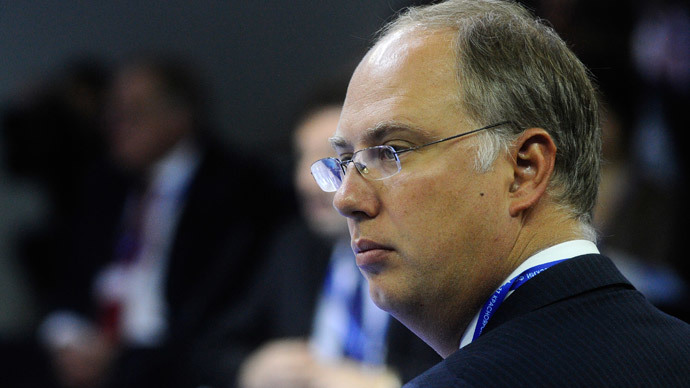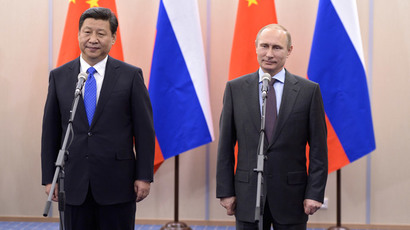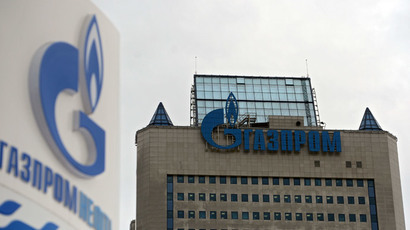Russia and China to construct first rail bridge across Amur River

Russia and China have agreed to build the first cross-border rail bridge over the Amur River by 2016, following President Putin’s visit to Shanghai. The bridge will cut transportation times and increase trade.
Construction of the bridge is scheduled to start within the next few months.
"It is the first ever bridge between Russia and China. Now generally there are no bridges between our countries: neither automobile, nor railway," Kirill Dmitriev, the head of the Russian Direct Investment Fund told journalists on Tuesday.
"RCIF [Russia-China Investment Fund] not only builds
financial bridges between Russia and China, but also invests in
the infrastructure to benefit both countries," Dmitriev said
in a press release on Tuesday.
The bridge will be a project of the Russian-Chinese Investment Fund and will be able to handle 21 million tons of traffic a year. It will connect the Jewish Autonomous Region with the Chinese province of Heilongjiang.

The new export corridor will make it easier to transport oil and gas from the new fields developed in Eastern Siberia and the Far East.
It will also significantly increase the turnover of goods and competitiveness of Russian exporters in the region. The new route will reduce the distance to the end customer by about 700 kilometers compared to other rail routes.
According to Kirill Dmitriev "railway border crossings in the region are currently operating close to maximum capacity.The future development of new natural resource deposits and increased level of traffic over the next 10 years means the region could face a shortage of export transportation capacity."
In the first day of a two-day trip to China Russia’s President Vladimir Putin said the two countries will increase their bilateral trade. According to the President in 2013 the trade turnover between Russia and China grew almost 2 percent to about $90 billion.
Following the same pace Putin expects the trade to reach $100 billion by 2015.














